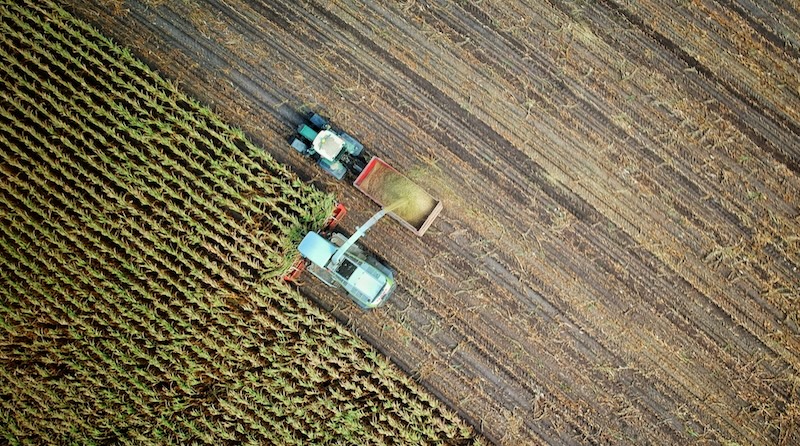Exeter law grad Harry Cooke analyses budget changes to agricultural property relief that sparked protests around the country

Farmers across the UK have taken to the streets in response to the Labour government’s recent budget announcement, which will see a major shake-up to inheritance tax (IHT) relief on agricultural property.
Modern inheritance tax can be traced back to 1894, when Estate Duty was introduced as a tax on wealth passed down after death. Agricultural property relief (APR), which exempts agricultural property from IHT, was first introduced in 1992 under John Major’s Conservative government. The policy aimed to allow family farms to pass between generations without significant financial burden.

Under the current system, land and pastures used for growing crops or raising animals benefits from 100% relief from IHT, allowing estates to be passed down without a tax burden.
However, as part of Labour’s pledge to “make the IHT system fairer,” the 30 October 2024 budget introduced a cap on full relief at £1 million, with a reduced 50% relief for anything above this threshold. While the government claims this reform will raise £1.765 billion between 2026 and 2030, the farming community warns it could have devastating consequences for an industry already under financial strain.
Why does inheritance tax relief matter to farmers?
According to the government, reforms to agricultural property relief are expected to impact only the wealthiest 500 estates each year, with smaller farms remaining unaffected. This means that almost three-quarters of estates claiming agricultural property relief, including those that also claim for business property relief, would not be impacted by the changes, based on the latest available data. However, farming families argue that the existing relief has been fundamental in ensuring the survival of generational farms.
The agricultural sector is often described as being “asset-rich but cash-poor,” meaning that while many farmers own valuable land, machinery and livestock, their actual income is often modest. Without the benefit of the current provisions of 100% IHT relief, farmers warn that passing land onto the next generation could become financially unviable, potentially forcing many to sell up.
Various other reporting agencies have also predicted that the impact is expected to be more widespread. According to the Agricultural and Horticultural Development Board (AHDB), over 75% of farms larger than 124 acres in England and Scotland will be affected by the changes. Farmers also point out that with the UK producing 60% of its own food, weakening the agricultural sector could have long-term consequences for national food security.
While the government has allowed IHT payments to be spread over 10 years – and suggested that married individuals could make use of up to £3 million in relief, many in the industry argue this simply expands the financial burden rather than solving it. Farms which do not make a sustainable return will be negatively impacted either way if they are above this threshold.
Protests escalate as farmers fight back
Anger over the reforms has led to nationwide protests, with farmers driving convoys of tractors through major cities, including London. The National Farmers’ Union has condemned the changes, warning that they could:
- Reduce investment in farming
- Lower profitability for farms
- Reduce the amount of land available for tenancies
- Undermine domestic food production
- Threaten the future of multi-generational family farms
Want to write for the Legal Cheek Journal?
Find out moreA UK Government and Parliament petition opposing the IHT reform has gained over 150,000 signatures, triggering a parliamentary debate. However, the government has so far remained firm, insisting that the policy “strikes a fair balance” between raising revenue and supporting the agricultural sector.
Farmers don’t hoard wealth; they survive
Despite government claims that the changes are about tax fairness, farmers argue that they are being unfairly targeted. Many see this as a misunderstanding of the realities of farming life, where profit margins are tight, and long hours are often rewarded with little financial gain.
Growing up in a farming family, I have seen first-hand the dedication it takes to keep a farm running. My father and generations before him have worked tirelessly for decades, navigating unpredictable weather, fluctuating crop prices, and changing government policies. My brother will eventually follow in his footsteps, not for financial gain but out of passion – because for many, farming is not just a job, it’s a way of life.
This sentiment is echoed by thousands of young farmers, who worry that their dreams of taking over family farms are slipping away.
Tax loophole or essential support?
Labour’s decision to reform IHT relief on farmland is, in part, a response to concerns that wealthy individuals have been exploiting the system to avoid tax. Groups like Tax Justice UK have highlighted cases where non-farmers have purchased agricultural land purely to shelter their estates from inheritance tax.
Even public figures have been caught in the debate. Jeremy Clarkson, who famously bought his 312-acre farm in Oxfordshire, admitted in 2021 that IHT relief was a “critical factor” in his decision to invest in farmland. However, after facing backlash, he later insisted that his main motivation was for shooting.
While there may be isolated cases of abuse, targeting a substantial number of farms is deeply unsettling for the community. NFU representatives and industry leaders continue to press the government for amendments to the policy, warning that if left unchanged, it could lead to land disposals from private estates — impacting tenant farmers who rely on rented land for their livelihoods.
What happens next?
Opposition parties are seizing on the backlash, with the Conservatives vowing to overturn the reforms if they return to power, and the Conservative party leader stating that the new provisions for IHT were “immoral”. Critics within the party have also warned that the reforms could have far-reaching economic consequences, ”driving farmers to despair” and accused the Chancellor of “conspiring against our rural economy”.
Labour’s inheritance tax reform is a defining moment for UK agriculture. While the government argues that this change prevents tax avoidance and raises much-needed revenue, the farming community sees it as an existential threat. With protests mounting, political pressure building, and key industry groups demanding change, the battle over agricultural inheritance tax is far from over.
Harry Cooke is a University of Exeter Law School graduate, currently undergoing the LPC LLM course at the University of Law. He has a particular interest in rural law and policy and enjoys exploring the Devon countryside in his free time.
The Legal Cheek Journal is sponsored by LPC Law.
 (
( (
(
